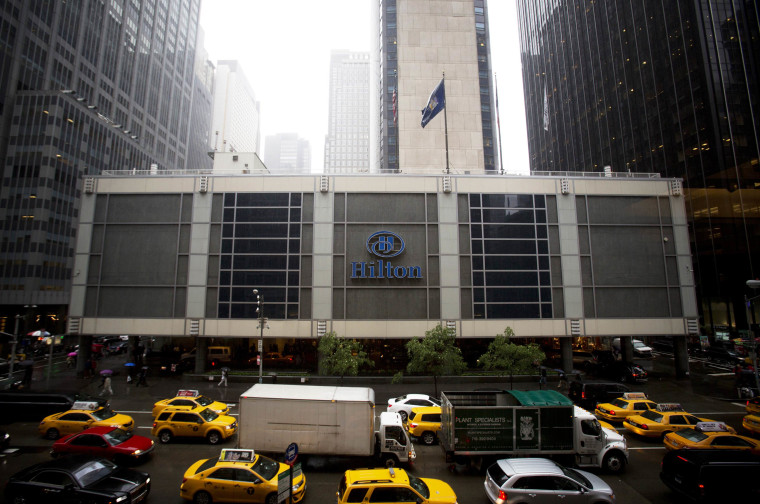The demise of room service may be exaggerated.
Sure, it's true that hotels appear to be scaling back or eliminating options. The New York Hilton Midtown made the news last week for its plans to discontinue its food and drink service to rooms in August. It follows in the footsteps of Hilton Hawaiian Village Waikiki Beach Resort, which did so last fall.
Nationwide, according to Smith Travel Research, there are 2.7 million limited-service hotel rooms (i.e., those without an on-site restaurant or banquet facilities), up 16 percent from a decade ago. In comparison, there are 2.2 million full-service rooms, up less than 6 percent over the same period.
It's no surprise—room service isn't profitable, said Robert Mandelbaum, director of research information services for PKF Hospitality Research. In 2012, room service accounted for just 1.22 percent of a typical hotel's revenue, according to the firm. Even though hotels had more guests that year than in 2009, when occupancy hit a low, those guests ordered 25 percent less overall.
Read More:'Room Service' No Longer Heard at NYC's Largest Hotel
But no "room service" doesn't mean that hungry travelers have no recourse. "Very few people are going to find that they absolutely can't get something to eat if they want something to eat, at the hotel, in their room," said Ed Perkins,contributing editor for SmarterTravel.com, a travel-advice site.
What travelers are likely to see less of is room-service touches like a silver tray, fancy stemware or delivery by a butler. Meals are more likely to be brown-bagged, grab-and-go options that can be picked up from a café in the lobby or sent up to a room, said Bjorn Hanson, divisional dean of New York University's Center for Hospitality, Tourism and Sports Management. That's what the New York Hilton Midtown will be implementing, he said, and what the chain has been pilot testing in other locations. Even if there's no room-service menu, on-site restaurants are typically willing to offer takeout, Perkins said.
Hotels that don't have a restaurant on site are often aggressive about promoting local restaurants that deliver, too, said Mandelbaum. Guests can often find local menus in the in-room binder of hotel services and amenities, or, failing that, through the front desk or concierge. And there are online ordering sites such as Seamless.com and LivingSocial.com, which connect diners with open restaurants in the area that will deliver, he said. (Just check first that the hotel allows delivery personnel beyond the lobby.)
The new room service might put off travelers hoping for white-glove service, but for travelers on a budget, it's likely to work out more in their favor. Typical room service menus often boast higher prices than travelers would pay eating at the on-site restaurant, Perkins said, plus extra service charges and gratuities. "It really piles on the cost," he said. Local delivery is usually free, and hotel grab-and-go options tend to be more moderately priced.
A tangential trend that might also help: More hotels are offering guests the ability to borrow kitchenware. In February, Hyatt Hotels and Resorts launched a "Hyatt Has It" program that offers guests free use of tea kettles and, in many locations, blenders. It's also common for travelers to find locations offering in-room refrigerators and microwaves, Perkins said.
Travelers are unlikely to see room service disappear entirely, at least in the short term. Rankings from AAA and other groups often require room service to be offered to maintain a top score, said Mandelbaum. Hotels may find that offering it makes them look more favorable compared to similarly priced competitors, particularly if they cater to business travelers or are near airports and have guests arriving at all hours.
Mandelbaum said room service, for some travelers, is like having an on-site pool—"Ninety percent of people will say they want to stay at a hotel with a pool, even though only 10 percent will actually use it."
—By CNBC.com's Kelli B. Grant. Follow her at Twitter @KelliGrant.
More from CNBC.com:
